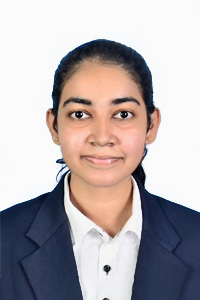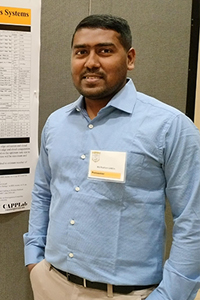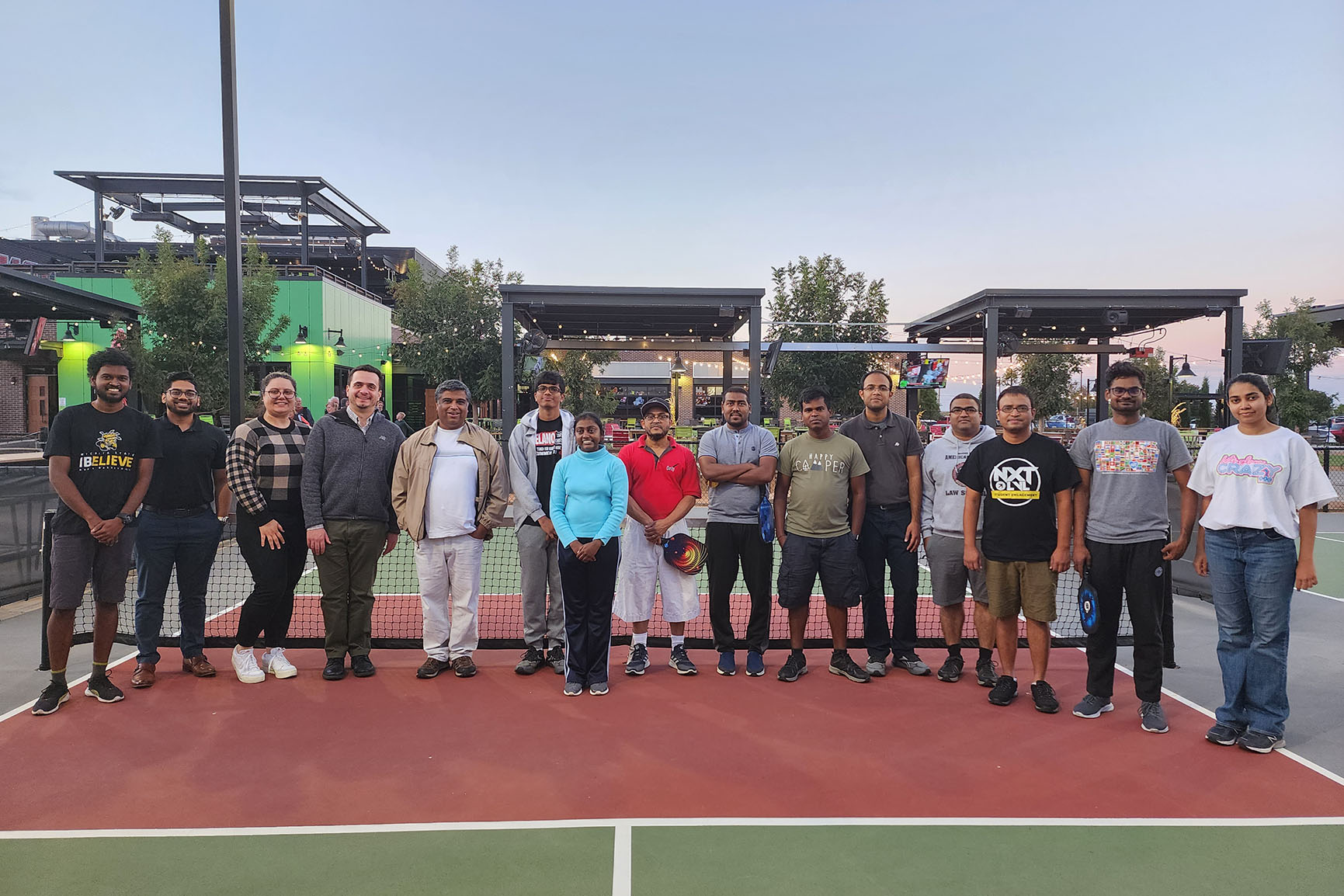Current Students (2023-24)
Listed below are select students who are currently enrolled in the doctoral program (PhD) in electrical and computer engineering. Click on their names to learn more about their research direction, research interests and contact information.
 |
Advisor: Visvakumar Aravinthan Title of Dissertation / Research Direction: Impacts of multi-area Distributed Energy Resources on transmission lines and equity concerns. Brief abstract of the research: The ongoing paradigm shift from conventional energy generation resources to the widespread integration of Distributed Energy Resources (DERs) is a prevalent and progressively advancing phenomenon in the United States. Presently, transmission planning studies do not comprehensively account for the presence of DERs. Given the escalating deployment of DERs, it is imperative to thoroughly comprehend and quantify their impacts on transmission assets. DERs have the potential to significantly alter the utilization patterns of transmission lines, thereby introducing additional costs for transmission owners. If not properly identified, DERs in a region can impose additional costs to the adjacent area transmission owners. My research is to identify and analyze the techno-economic impacts of DERs in a selected region to the adjacent area transmission lines. Research Interests: Distributed Energy Resources, Transmission Planning Studies, Renewable Integration to Grid, Energy Storage Systems. |
 |
Advisor: Chengzong Pang Title of Dissertation / Research Direction: Artificial Intelligence Method for Transient Stability Assessment Brief abstract of the research: Transient Stability Assessment (TSA) has always been the fundamental and one of the most challenging problems for ensuring the security and operation of power systems. With more power electronic interface resources integration to the grid as well as large renewable energies, the stability of the power system jeopardizes. Therefore, TSA of the power system should be considered in advance to maintain the system running stable. In recent years, with the development of Artificial Intelligence (AI) technologies, TSA has improved dramatically. My research applies the most popular AI methods such as SVM, Long Short-term Memory, and Dictionary Learning, etc. to TSA to improve the stability of the power system. Research Interests: Power System Stability, Power System Protection, Power System Operation and Distribution, Renewable Energy. |
 |
Advisor: Visvakumar Aravinthan Title of Dissertation / Research Direction: Impact mitigation of HILF events at the transmission level considering customer equity and system operations Brief abstract of the research: Recent High impact low-frequency events have raised significant concerns on reliability and resiliency of the power grid. Transmission-level emergency responses, such as load curtailment operations, are assessed, and restrictions are emphasized throughout most hazardous events. My research focuses on providing optimal solutions to the challenges presented by current emergency operations, addressing both customer equity and system fairness to preserve the integrity of the power network and prevent catastrophic system failures and long-lasting outages. Research Interests: Transmission operation, HILF events, Distributed energy resources |
 |
Advisor: Dr. Abu Asaduzzaman Title of Dissertation / Research Direction: Increasing the scalability of Heterogeneous System Brief abstract of the research: The digital world has experienced advancement and improvement due to the remarkable surge of Internet of Things (IoT) devices in a heterogeneous system (HS). The number of IoT devices connected to the cloud for computational purposes has been growing quickly due to the ongoing advancements in technology, and this trend does not appear to be slowing down. The limitation of Cloud Servers (CS) supports a certain amount of data generated by those devices poses a challenge to accumulate additional devices to the HS. Studies show that Edge Computing (EC) has the potential to complete many of those computations which are done by the CS. This work introduces a methodology to optimize EC for achieving scalable HS. We consider HS with one CS, two ES, ten distribution routers (DRs), four edge routers (ERs), two core routers (CRs) and 30 edge devices of five different types. First, we optimize EC in the system by distributing computations among ES and CS. Second, we assess the additional amount of data that the CS can process due to offloading computations to ES. Finally, we estimate the number of devices to generate the additional amount of data that can be added to the existing system. Experimental results show that the HS can process 333.37% additional data that are equivalent to 32 devices. According to the experimental results, the proposed method helps add 106.67% additional devices without any changes in the underlaying infrastructure. The integration of machine learning to optimize EC and to estimate system’s scalability can be studied in future. Research Interests: Machine Learning, High performance computing, Heterogeneous system, Modeling and simulation. |
 |
Advisor: Visvakumar Aravinthan Title of Dissertation / Research Direction: Valuing Distributed Energy Resources for Transmission Planning Brief abstract of the research: Distributed Energy Resources (DER) are often overlooked as a generation source when planning at transmission level. Given the accelerated growth of the DERs in recent years, it is time to start considering both their positive and negative impacts to the existing grid. My research focuses on predicting DER growth scenarios, analyzing their impacts at transmission level, valuing DER host locations based on their incurred impacts, and using the values to effect control on DER growth that supports long term system reliability. Research Interests: Transmission Planning, Distributed Energy Resources, Renewable Energy. |


